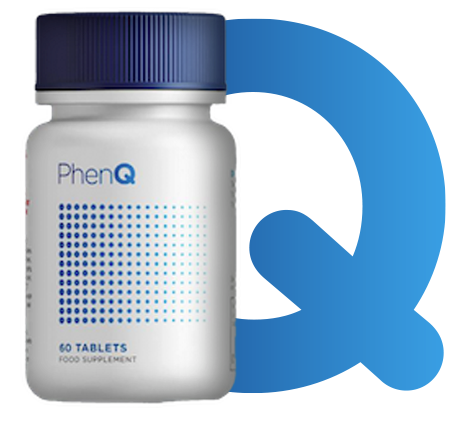Does phentermine burn fat? Those who are having trouble losing weight frequently look for phentermine, a prescribed weight-loss medication. Acting as an appetite suppressant, phentermine helps in reaching weight loss goals. However, there is often confusion about how it works and whether it directly burns fat or just reduces cravings.
In this blog post, we will explore how phentermine works, its side effects, and its role in supporting weight loss. Understanding the mechanism of phentermine can help individuals make decisions about using it as a tool for weight loss.
Does phentermine burn fat or just suppress appetite?

What is phentermine?
Phentermine, approved by the FDA for short-term weight loss use, is recommended to be used for a week, according to the National Library of Medicine. By stimulating brain chemicals, phentermine sends signals that tell the body when it is full. This can help individuals manage their appetite and eat less.
How does phentermine work?
Phentermine targets areas in the brain that control appetite through the system. When taken, it triggers the release of neurotransmitters, messengers that facilitate communication, in the brain. Among the neurotransmitters, such, as norepinephrine, dopamine, and serotonin, they play a role in suppressing the appetite.
Norepinephrine, a neurotransmitter that phentermine affects, plays a role in controlling hunger and feelings of fullness. By boosting norepinephrine release, phentermine helps decrease appetite and the desire to eat. On the other hand, dopamine and serotonin contribute to feelings of happiness and satisfaction. By increasing dopamine and serotonin levels, phentermine assists in fostering a sense of contentment with food portions, ultimately reducing calorie intake.
For years now, phentermine has been shown to be effective in aiding weight loss. Since its approval in 1959, it has remained a prescription option for managing weight concerns, either alone or when combined with other medications.
Although the exact mechanisms by which phentermine regulates appetite are not fully understood, researchers suggest that the medication boosts neurotransmitter levels in the brain, leading to decreased hunger.
It is important to highlight that achieving weight loss effectiveness may also depend on an individual’s choices and lifestyle adjustments. Regular physical activity, monitoring calories consumed, and maintaining a diet are components. These changes alone often result in weight loss success, with phentermine potentially enhancing these outcomes. A study featured in Obesity indicates that phentermine could enhance the effectiveness of diet plans.
When and how to use Phentermine
It is crucial to consult with a healthcare professional before deciding to use Phentermine. They will carefully review your history to determine if phentermine is the right option for you. Typically, this medication is prescribed for individuals with a body mass index (BMI) of 30 or higher. However, those with a BMI of 27 or higher and obesity related conditions like high blood pressure or diabetes may also be considered.
It’s important to note that certain medical conditions may make phentermine unsuitable, such as uncontrolled blood pressure, heart disease, or a history of substance abuse. These conditions can increase the risk of side effects when using phentermine. Therefore, it’s essential to discuss your history and any potential risks with your healthcare provider before starting Phentermine.
The usual recommended dose for phentermine is once daily, either before breakfast or 1-2 hours after eating. It’s crucial to follow the dosage instructions provided by your healthcare provider and not exceed the recommended duration of use.
Forms and Recommended Dosage
Phentermine comes in various forms, including tablets, capsules, and orally dissolving tablets. The amount of phentermine you take is tailored to fit your needs, taking into account factors such, as your background, how you respond to the treatment, and your specific weight loss targets.
In general, adults usually take either 15 mg, 30 mg, or 37.5 mg of phentermine, which corresponds to 12 mg, 24 mg, or 30 mg of entermine, respectively. For use, the doses of phentermine and topiramate can vary from 3.75 mg to 23 mg of phentermine and 92 mg of topiramate.
It is advisable for doctors not to prescribe phentermine to patients because it could potentially strain their kidneys. Additionally, children under the age of 16 should avoid this medication due to its risks.
Your healthcare provider will determine the dosage of phentermine for you based on your requirements and weight loss objectives. It’s essential to follow the dosage and avoid going over it since increasing the dose doesn’t necessarily lead to more weight loss and might increase the chances of experiencing side effects.
Are there any side effects associated with phentermine?
Before starting treatment with phentermine, its crucial to be aware of its side effects. While many people tolerate phentermine well, there are a range of side effects that may occur at different levels of severity.
Phentermine, whether used on its own or combined with drugs such as topiramate, can lead to a range of side effects. These may include issues with falling or staying asleep, symptoms like chest discomfort and confusion, elevated blood pressure, constipation, and symptoms such as diarrhea, throwing up, and feeling restless, such as heart palpitations. Other possible side effects could involve a taste in the mouth, dryness in the mouth, swelling in the legs and ankles, and difficulty breathing.
It’s important to understand that phentermine may not be suitable for everyone seeking a weight loss solution, including individuals with medical conditions or those on specific medications. Risk factors that might make phentermine inappropriate include hyperthyroidism, glaucoma, heart problems, a history of substance abuse disorders, and the use of antidepressants like monoamine oxidase inhibitors or selective serotonin reuptake inhibitors (SSRIs).
Pregnant or nursing women should steer clear of phentermine until they are done breastfeeding. People with diabetes or low blood sugar who are prescribed phentermine will require monitoring by their healthcare providers since they may need to adjust their insulin or other medications while using this drug. Furthermore, it is recommended to refrain from consuming alcohol while taking phentermine, as it could have interactions with the medication.
Can weight loss be maintained with phentermine?
Phentermine can act as a catalyst for weight-loss efforts. Sustaining long term success depends on making lasting lifestyle changes. While phentermine can help with weight loss, keeping off the weight requires dedication and adjustments to one’s lifestyle.
To ensure that weight loss is sustainable, it’s important to focus on well-being rather than relying solely on medication or short-term diets. Sustainable weight loss involves adopting a diet, regular exercise, and positive lifestyle changes. These changes can help individuals develop habits that enhance their body composition and achieve weight management.
Addressing eating, managing stress, and dealing with any factors contributing to weight gain are key elements of this journey. Seeking support from health professionals, support groups, or counselors can be beneficial in promoting well-being and maintaining long-term weight control.
Does phentermine actually burn fat or just reduce appetite?
Phentermine primarily works as a suppressant by reducing calorie intake. By controlling cravings and lowering hunger levels, phentermine helps cut down on calories consumed—an aspect of weight loss. The appetite suppressing effect of the medication can aid in weight loss by creating a calorie deficit.
Phentermine does not help reduce appetite. It also impacts energy expenditure, aiding in long term fat loss. By stimulating the system, phentermine boosts metabolism and thermogenesis, which burn calories by generating heat in the body. This metabolic enhancement supports fat burning for energy. Contributes to weight loss.
It’s essential to understand that phentermine isn’t a solution for weight loss and should be combined with a diet and regular exercise for the best results. While phentermine can assist in weight loss endeavors, true fat reduction occurs when energy expenditure exceeds calorie intake.
Can phentermine serve as a weight loss option?
Typically prescribed for a period of around 12 weeks, phentermine is restricted due to potential dependency risks and adverse health effects from prolonged use. While some studies suggest its safety for long-term usage, it is generally recommended to use it. It’s crucial to adopt lifestyle changes alongside phentermine and consult with a healthcare provider before considering it as a lasting solution, for weight management.
Summary
Phentermine acts effectively as a weight loss aid by curbing cravings and boosting metabolism. Its function does not just help in cutting down on calories. It also stimulates the production of brain chemicals that support burning fat.
Before starting any medication, it’s crucial to talk to a healthcare professional to determine if Phentermine is right, for your requirements. Keep in mind that achieving weight loss is a process that requires a comprehensive approach, for lasting results.





















Add comment